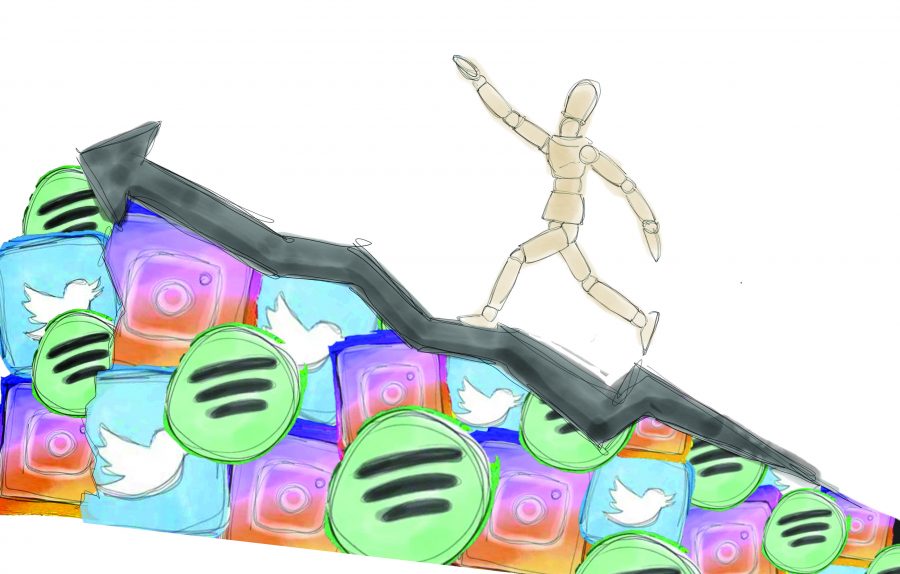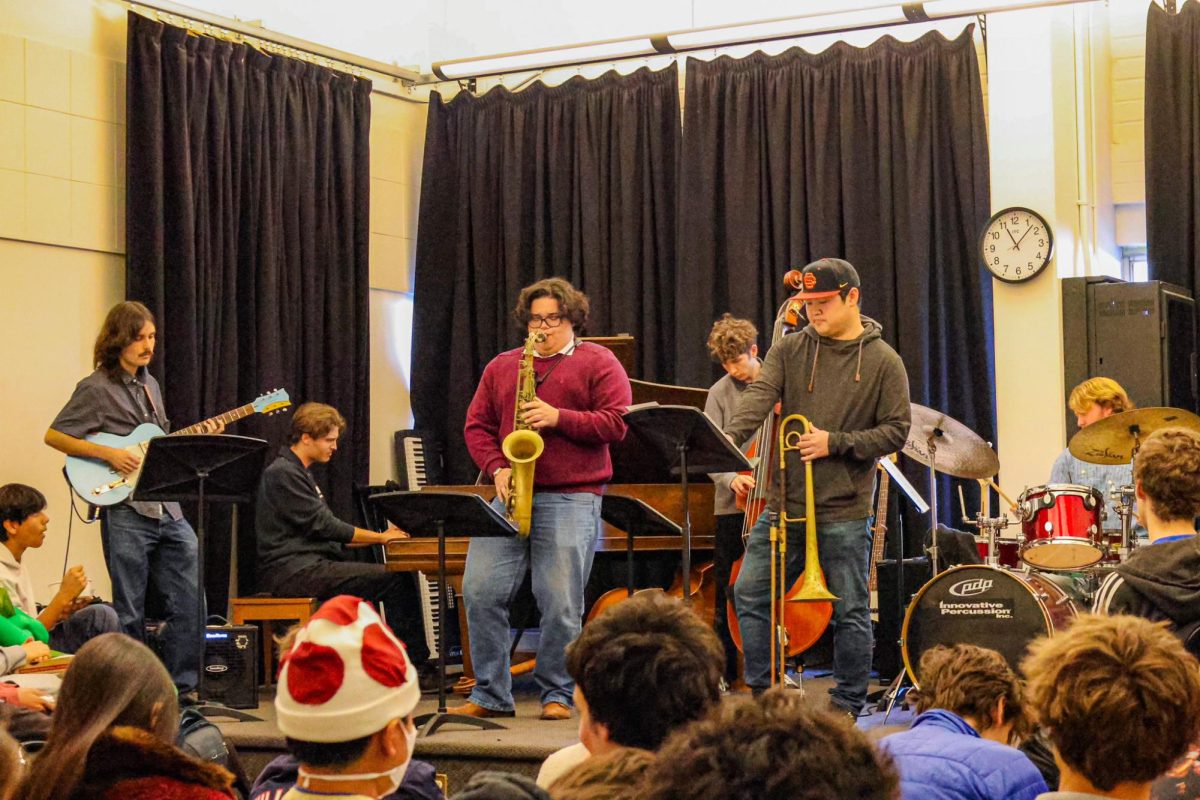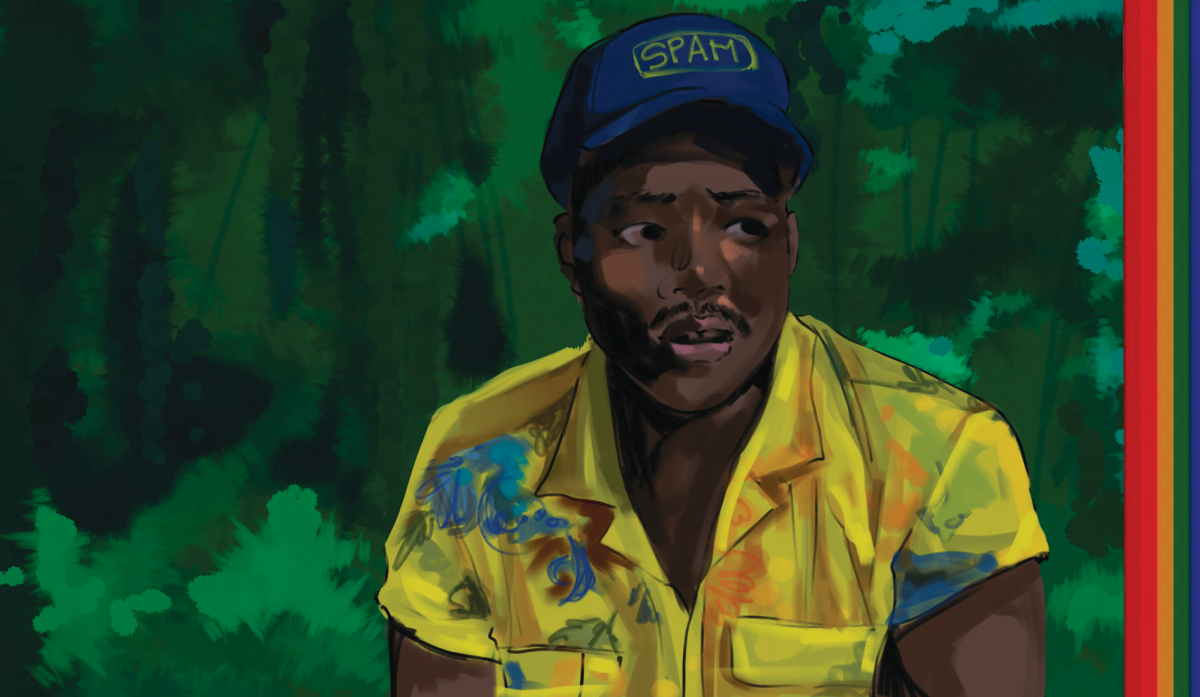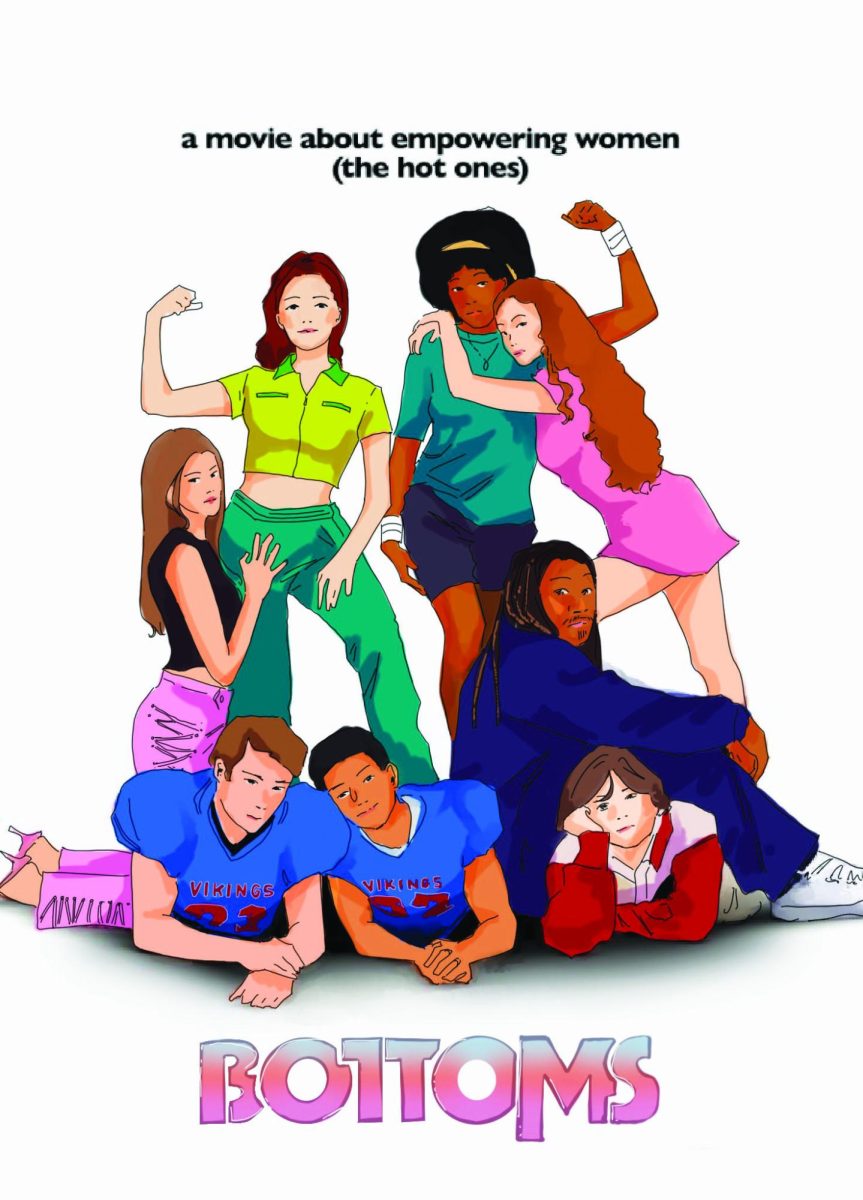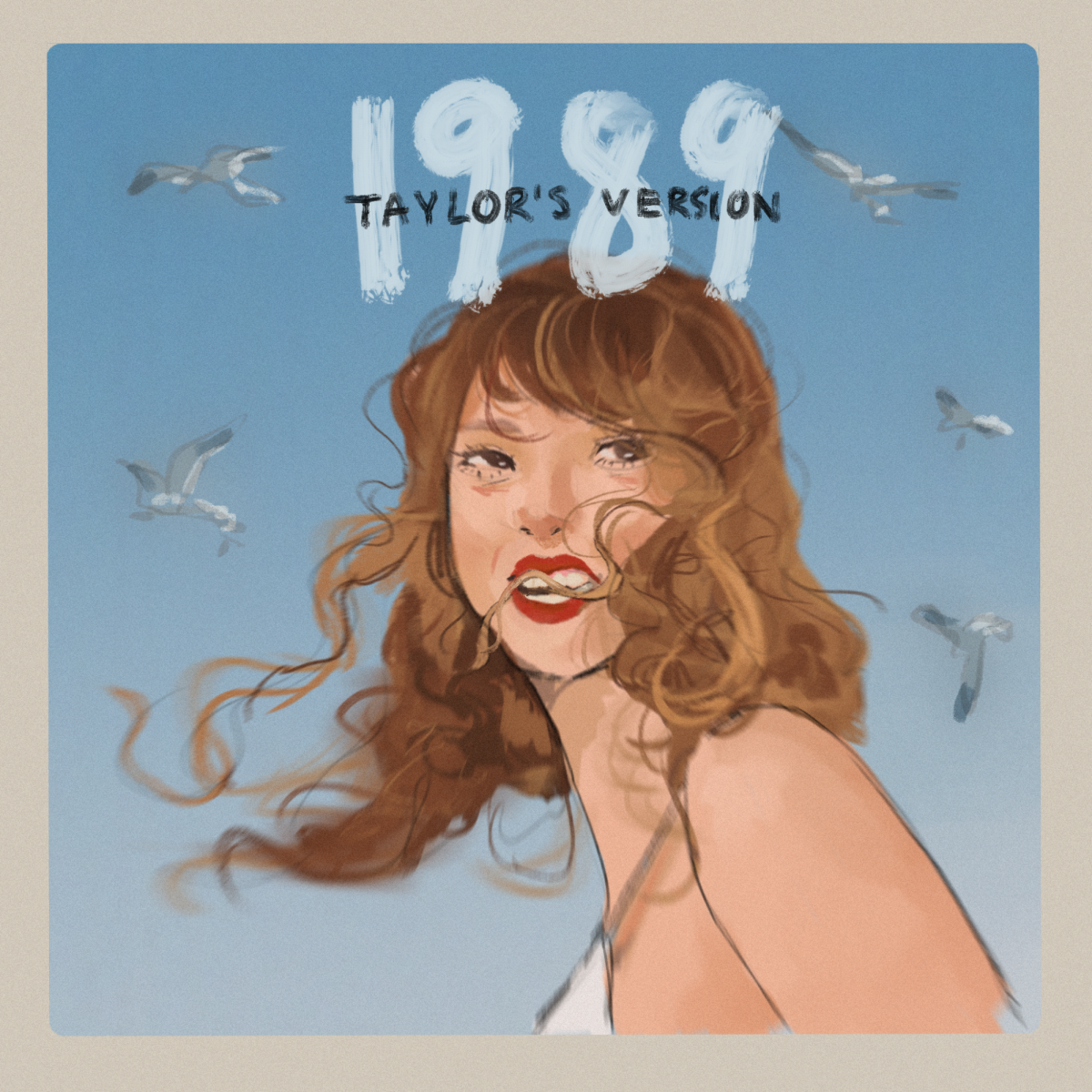As his Spotify follower count ticked up by the minute, Graham Berger-Sacks ’20 grew increasingly curious about what was happening. Checking his phone anxiously between classes, possibilities began to race through his mind. When the metrics on his Spotify developer account finally updated at 9 p.m., Berger-Sacks said he could not believe his eyes. His first song released on Spotify, “Pain on My Mind,” had made it onto a Spotify Discover Weekly playlist, and its streams had jumped from 6,000 to 28,000 in one day.
“It was an unbelievable feeling because I thought I was going to be the next Rihanna in a couple of days,” Berger-Sacks said. “Even though that didn’t happen, it was so cool to see and it really validated all the hard work I had put in.”
Since then, Berger-Sacks, known by fans as Graham Riley, has had two of his other songs make it onto Discover Weekly playlists. He has released multiple singles and an EP, accumulating almost 500,000 streams on Spotify as of press time.
For many rising artists on campus, streaming services and social media provide a new way to increase their following and grow their name. Instead of going through the traditional process of recording albums and selling them on iTunes, artists now are moving toward platforms like Spotify and Instagram.
President of YMU Group Lawrence Vavra, who has managed artists such as Blink-182, Steve Aoki and Smashing Pumpkins, said he has seen an explosion of up-and-coming musicians over the last several years due to social media and streaming services.
“The existence of these platforms has tipped the balance of power back into the hands of the content creator,” Vavra said. “There is no longer a barrier of entry for a developing artist that labels have been able to exploit for decades. Artists now have an audience accessible to them at any and all times.”
Grace Burton ’20, Jasper Richards ’20, Otis Gordon ’20, Jakob Adler ’20 and Lauren Juzang ’20 also use Spotify to expose their band, Deli Hours, to audiences outside their immediate community.
“We actually have listeners in every country that Spotify has a base in, which is crazy because I don’t know how they would have found us,” Burton said. “Without Spotify, we would never be able to have that.”
Deli Hours also uses Instagram to update followers about upcoming shows. Burton said that she believes the social media platform plays a large role in increasing their popularity, especially as an unsigned band.
“I definitely think that it would be more challenging to be a band that is not signed or doesn’t have a contract or a label because it would be a lot harder to get your name out there and have people find out who you are without social media,” Burton said. “There wouldn’t be easy ways to publish your music and easy ways to reach out to venues.”
For the past three years, Berger-Sacks has interned at Roc Nation, an entertainment company that works with artists including Juice WRLD, J. Cole and Rihanna. He said that through his experience working with marketing managers at Roc Nation, he has been able to see how artists use social media to maintain and grow their fanbases.
“The bigger the artist gets, the more social media is super important, because they can post all the time without people getting annoyed,” Berger-Sacks said. “But for me and other developing artists, if you post every day, people will get frustrated because they are not really in love with you yet.”
Cassius Bythewood ’19, known by fans as King Cassius, also uses social media as his primary outlet to promote his music.
“Just having social media gives me a place where my fans can stay updated with my music,” Bythewood said. “Without those updates, fans can quickly forget about you and what you are doing. It is kind of like a home page. Instead of having a website, I have an Instagram. That’s basically why social media has changed the game for new artists.”
In order to boost their following, many musicians, including Berger-Sacks and Bythewood, purchase sponsored posts on Instagram. While Berger-Sacks only spends around $5 every few weeks, he said that it is possible for an artist to spend thousands a day for an ad to appear on as many feeds as possible.
“There are opportunities where you can promote your posts, and any time I have a video snippet of my music on my Instagram, I can publicize it so when people are scrolling through their feed, they can listen and visit my profile, which really helps,” Bythewood said.
Bythewood said he thinks social media has played a critical role in helping him make the biggest impact possible as an up-and-coming musician.
“I’ve got to remember why I started recording music, which is ultimately to make a difference in the world,” Bythewood said. “The more services and platforms there are to reach people and help them hear my message, the better chance I have to make a difference.”



























